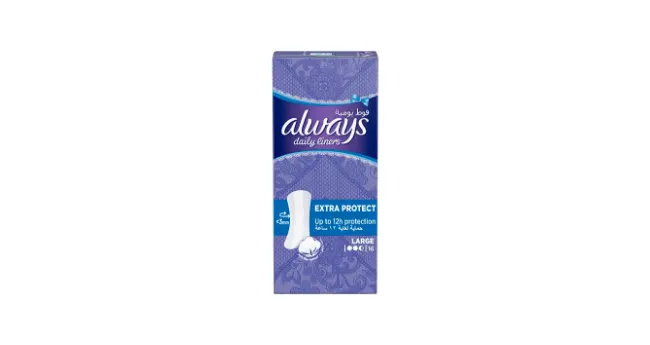Vaginal Wetness: What Is Causing It & Is it Normal?

Noticing more vaginal wetness than usual can feel confusing or even worrying—but it’s important to know that some level of wetness is completely normal. The vagina naturally produces fluids to stay healthy, clean, and well-lubricated. However, when the wetness becomes excessive or constant, it may raise concerns or cause discomfort in daily life.
Understanding what causes vaginal wetness can help you know when it's a normal part of your body’s natural process and when it might be a sign to seek advice. From hormonal changes to infections or other health conditions, there are various reasons why you may experience more moisture than usual.
This article explores the common causes of vaginal wetness, what is considered normal, and offers helpful tips on how to reduce vaginal wetness if it's affecting your comfort or confidence. Let’s break the silence and talk about what your body might be trying to tell you.
- What Is This Fluid?
- Types of Vaginal Fluids & Their Functions
- What Causes Vaginal Wetness?
- Other Causes of Vaginal Wetness
Have you ever noticed unexpected wetness in your underwear and wondered what’s causing it? Maybe you’ve asked yourself—Did I accidentally pee? Am I ovulating? Or is something else going on? Vaginal wetness is a completely natural and common occurrence, but the amount and frequency can vary from person to person. In most cases, it’s just your body’s way of keeping things healthy and balanced.
However, if you’re experiencing persistent or excessive vaginal wetness, it might leave you feeling uncomfortable or even concerned. Could it be due to arousal, ovulation, an infection, or something else entirely? Understanding the causes of vaginal wetness is key to knowing what’s normal and when you might need to pay closer attention. Keep reading as we break it all down!
What Is This Fluid?
As a part of its natural self-cleansing process - the vagina produces a fluid to lubricate its walls. This action safeguards the vagina from genital injury. At the same time, keeps it clean, moist and away from infection. However, the vaginal wetness you feel isn’t necessarily the same fluid every time. It could be vaginal sweat, cervical fluid or arousal fluid.
Vaginal Sweat -
The vagina itself doesn’t sweat. However, there is a high concentration of apocrine sweat glands around the vagina on the labia majora.
Cervical Fluid -
It keeps changing in texture, consistency and colour throughout the menstrual cycle and has the ability to restrict or help the sperm from going further into the cervix.
Arousal Fluid -
This type of fluid is considered as the body’s sexual response.
Types of Vaginal Fluids & Their Functions
Vaginal fluids are a natural and important part of the female reproductive system. These fluids help keep the vagina clean, balanced, and protected from infection. They can vary in texture, colour, and amount depending on your menstrual cycle, age, health, and even emotions. Understanding the different types of vaginal fluids can help you feel more confident about what’s normal and when to seek medical advice.
Here are some common types of vaginal fluids and their roles:
Vaginal Sweat -
The vagina itself doesn’t sweat. However, there is a high concentration of apocrine sweat glands around the vagina on the labia majora.
Cervical Fluid -
It keeps changing in texture, consistency and colour throughout the menstrual cycle and has the ability to restrict or help the sperm from going further into the cervix.
Arousal Fluid -
This type of fluid is considered as the body’s sexual response.
Everyday Discharge -
This is the most common type of vaginal fluid. It’s usually clear or milky white with a mild scent. Everyday discharge keeps the vagina moist and helps flush out dead cells and bacteria, maintaining a healthy pH balance. The amount may vary from person to person and can increase with hormonal changes like ovulation or pregnancy.

What Causes Vaginal Wetness?
At some point in life, every woman experiences vaginal wetness. Here are some of the common causes of vaginal wetness, some of which may require medical attention.
1. Normal Vaginal Fluids
Many of us notice a little vaginal wetness every single day. There’s no need to shy away from it. It’s a regular cleansing routine wherein your vagina keeps secreting fluid. This mechanism enables it to keep bacteria and infections at bay. The amount of fluid secreted can vary from person to person, depending on where they are in their menstrual cycle. To combat such wetness, using pantyliners is the best option. Try the ALWAYS Comfort Protect Pantyliners which offer a comfortable and flexible fit. They are equipped with odour-neutralising properties which make you feel fresh and confident. Additionally, these liners are dermatologically tested and are gentle on the skin.

2. Sexual Arousal
Imagine you are having a good time with your partner and things start to take a steamy turn. Your body gets excited sexually and you feel a little wet down there. It’s the Bartholin glands, present on each side of the vaginal opening, which are responsible for making your vulva wet. These glands secrete fluid that aids in lubricating the vagina. This minimises the risk of painful friction, and injuries and makes intercourse pleasurable.
3. Hormonal Changes
If you are on hormonal treatment, you would notice vaginal wetness. The reason behind this is the spike in oestrogen levels. This hormone triggers the Bartholin glands to produce more fluid, causing increased vaginal wetness. On the other hand, as a woman ages her body reduces the production of oestrogen causing vaginal dryness.
4. Infections
An increased vaginal wetness can dampen not only your panties but also your vaginal health. It’s because sometimes excessive vaginal wetness can be a by-product of a vaginal infection. It could be a yeast infection, bacterial vaginosis or Trichomoniasis. To deal with such a type of vaginal wetness, it’s important to speak to a doctor. He will help diagnose the infection and provide the required treatment. While the medications work, you can use a pantyliner like the ALWAYS Extra Protect Pantyliners to keep your panties clean. These liners have odour-neutralising technology and are made available in extra-long sizes for added protection.
5. Stress, Mood, & Mental Health
Your emotional wellbeing can affect your body in surprising ways. When you're stressed, anxious, or experiencing intense emotions, your hormones may shift, sometimes leading to increased vaginal wetness. Even feeling nervous or excited can trigger temporary wetness, as the body responds to emotional changes.
6. Medical Conditions That Cause Excess Vaginal Wetness
Certain health issues such as vaginal infections, sexually transmitted infections (STIs), or hormonal imbalances can lead to abnormal wetness. If the discharge has a strong odour, unusual colour, or causes itching or discomfort, it’s important to speak with a healthcare provider.
Other Causes of Vaginal Wetness
Other reasons may include medications, dietary changes, or even using new hygiene products. Additionally, being close to ovulation can also increase wetness naturally. Each person’s body is different, so what’s normal for one may not be for another.
When To See A Doctor

Typically, vaginal wetness isn’t a cause for concern. However, if you notice too much vaginal wetness, it’s best to consult a doctor. Additionally, here are some other scenarios under which medical advice must be taken:
Vaginal discharge accompanied by a strong odour
Vaginal discharge that has a different colour - yellow, grey or green discharge
Vaginal pain, irritation or burning sensation
Swollen vagina
Takeaway
Vaginal wetness in itself is rather healthy. It helps fertility, provides pleasurable intercourse, and prevents vaginal pain. What you might feel is too much vaginal wetness might be normal for your body. However, if you have any more doubts about what's normal vaginal wetness and what’s not, speaking to a doctor is the best option. Likewise, if you notice any changes in your vaginal discharge be it odour or colour, you must consult a doctor immediately.
Stay well prepared for your next period by tracking it on Always Period Calculator
Disclaimer
Please note the date of last review or update on all articles. No content on this site, regardless of date, should ever be used as a substitute for direct medical advice, diagnosis or treatment from your doctor or other qualified clinician. Always is committed to ensuring that all of our products meet rigorous safety standards; Always pads prioritize safety, protection and comfort of its consumers.




